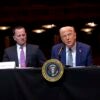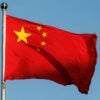So you think you’re free? Thanks to big government spending and exploding debt, the United States — and indeed the world — is less economically free today than it was a year ago, according to the 18th annual Index of Economic Freedom, released yesterday by The Heritage Foundation and The Wall Street Journal.
Economic freedom — the ability of individuals to control the fruits of their labor and pursue their dreams — is central to prosperity around the world. Heritage and The Wall Street Journal measure economic freedom by studying its pillars: the rule of law, limited government, regulatory efficiency, and open markets. Things like property rights, freedom from corruption, government spending, free trade, labor policies, and one’s ability to invest in and create businesses all factor in to a country’s economic freedom.
Sadly, economic freedom declined worldwide in 2011 as many countries attempted — without success — to spend their way out of recession. The editors of the Index explain what has led to this troubling decline:
The Daily Signal depends on the support of readers like you. Donate now
Rapid expansion of government, more than any market factor, appears to be responsible for flagging economic dynamism. Government spending has not only failed to arrest the economic crisis, but also–in many countries–seems to be prolonging it. The big-government approach has led to bloated public debt, turning an economic slowdown into a fiscal crisis with economic stagnation fueling long-term unemployment.
Though some might think that the United States — the land of the free, the home of the brave — is of course a leader in economic freedom, they would be wrong. The United States fell to 10th place in the world for economic freedom, and its score continues to drop. The U.S. ranked 6th in 2009, 8th in 2010 and 9th in 2011.
Heritage President Ed Feulner writes, “Under President Barack Obama, [the United States] has moved to the back of the band. Its economic freedom score has dropped to 76.3 in 2012 from 81.2 in 2007 (on a scale of 0-100).” The culprit? Government spending, which has grown to a level equivalent to over 40 percent of GDP, and total public debt, which exceeds the size of the economy.
Americans have been feeling the effects of the exploding government and resulting reduction in economic freedom. Some 13.1 million Americans are out of work, the unemployment rate has hovered between 8 and 9 percent, and the economy has merely been plodding along on the road to a very slow recovery. Though 200,000 jobs were added in December, Heritage’s James Sherk and Rea Hederman Jr., write, “At that pace, the unemployment rate will not return to normal levels (or 5.2 percent) for four and a half years–not until September 2016.”
America’s job creators know that it’s the policies emanating from Washington that are constraining their ability to create new jobs. According to a new survey of small businesses by the U.S. Chamber of Commerce, more than 80 percent are very concerned about the prospect of new regulations, mandates, and higher taxes. There’s another thing Americans should be worried about, as well: According to the Index, the United States has seen its “Freedom from Corruption” score drop, as well, due to the Obama Administration’s pursuit of increased regulations. As Feulner writes, “Each new edict means a new government bureaucracy that individuals and businesses must navigate. Each new law opens the door for political graft and cronyism.”
The United States isn’t alone in the trend away from increased economic freedom. Canada and Mexico lost ground in the Index, and 31 of the 43 countries in Europe saw reduced freedom, as well. Given Europe’s huge welfare programs and out-of-control social spending, that’s unfortunately not surprising. As the world suffers the economic repercussions of Europe’s debt crisis, the price of pursuing policies that constrict economic freedom should be clear.
For all the bad news that the Index uncovered, there is some good news for economic freedom around the world. Four Asia-Pacific economies–Hong Kong, Singapore, Australia and New Zealand–lead the Index with top scores this year, Taiwan has seen increased gains in economic freedom, and eleven of the 46 economies in sub-Saharan Africa gained at least a full point on the Index’s economic freedom scale. And Mauritius eighth place score is the highest ever achieved by an African country.
Much of the world, though, isn’t so lucky. While some countries have seen their economic freedoms increase, others such as India and China are constrained by government control and bureaucracy. Considering that areas like health and education are highly correlated with high levels of economic freedom, governments would serve their people well by pursuing the freedoms that many in the rest of the world enjoy.
Likewise, the United States would be best served by pursuing an agenda of economic freedom at home, too. The liberty to pursue happiness and profit from one’s talents and abilities is central to the American ideal. The Land of the Free should work to ensure that ideal is not just a dream but a reality as it leads the world by example in the quest for greater economic freedom.
Quick Hits:
- EXCLUSIVE VIDEO: What is the real legacy of Margaret Thatcher? Moviegoers will see one version this weekend, but there’s no resource better than the Iron Lady’s own words. Watch our new video at Foundry.org.
- President Obama made an official request yesterday that Congress raise the debt ceiling by an additional $1.2 trillion. The U.S. hit the $15.194 trillion debt limit last week.
- European Union members have agreed in principle to impose an oil embargo on Iran as part of the United States’ effort to pressure the regime over its nuclear development program. However, the European governments plan to delay for six months to arrange for alternate energy supplies.
- Was “Operation White Gun” another Fast and Furious-style ATF gun-smuggling operation gone wrong? Congress is investigating, and so far federal officials are refusing to comment on whether any guns were lost.
- LUNCHTIME CHAT: Join us today from 12-1 PM as we discuss President Obama’s illegal and unconstitutional appointments to the Consumer Financial Protection Bureau and the National Labor Relations Board. Click here to join in!






























